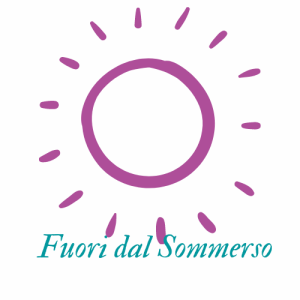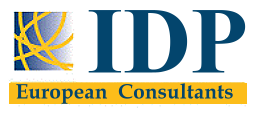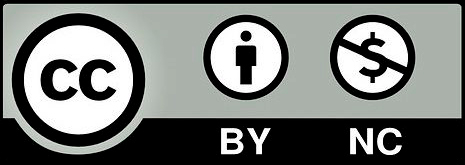EUROPE
FEBEA – European Federation of Ethical and Alternative Banks and Financiers – https://febea.org/
FEBEA is an association that represents and promotes ethical and alternative banks and financial institutions in Europe. It was founded in 2001 and erve sas a platform for collaboration, exchange of initiatives and practices, and advocacy for the development of ethical finance.
Its mission is to promote a financial system that prioritises social, environmental, and cultural objectives, alongside economic sustainability. Its members include a diverse range of ethical banks, cooperative banks, microfinance institutions, and other financial actors committed to responsible finance.
FEBEA works to raise awareness about the values and benefits of ethical finance, supporting its members in implementing sustainable and inclusive financial practices. The association advocates for policy changes that foster the growth of ethical finance, promoting transparency, accountability, and fair regulations in the sector.
Through FEBEA, members can collaborate on joint initiatives, share knowledge and expertise, and participate in research and capacity–building activities. The association also facilitates networking opportunities and promotes the exchange of ideas and experiences among its members.
FEBEA plays an important role in representing the interests of ethical and alternative financial institutions at the European level. It engages with policymakers, regulators, and other stakeholders to shape the development of a more sustainable and socially responsible financial sector in Europe.
GABV – Global Alliance for Banking on Values – https://www.gabv.org/
The Global Alliance for Banking on Values (GABV) is a worldwide network of independent banks that prioritise using finance to drive sustainable economic, social, and environmental development.
Established in 2009, the GABV comprises pioneering banks from diverse countries, united by their belief in a more equitable financial system.
With a vision of finance serving the needs of people and the planet, their mission is to advance values-based banking practices that foster social equity, address the climate emergency, and achieve genuine and lasting prosperity for all.
Operating as a dynamic movement of innovative leaders in sustainable finance, the GABV upholds the core values of integrity, human dignity, and environmental protection. Through leading by example and supporting others, they actively work to transform the banking and finance industry at local, national, and global levels.
Nasdaq Sustainable Bond Network – https://www.nasdaq.com/solutions/nasdaq-sustainable-bond-network-investors
The Nasdaq Sustainable Bond Network is a platform designed to provide transparency and facilitate the growth of the sustainable bond market. It represents as a comprehensive source of information for investors, issuers, and other market participants interested in sustainable bonds.
The network focuses on promoting sustainable finance by showcasing green, social, and sustainability bonds issued by companies and organisations around the world. These bonds are specifically dedicated to funding projects with positive environmental or social impacts, such as renewable energy, clean transportation, affordable housing, and healthcare initiatives.
The Nasdaq Sustainable Bond Network offers a centralised database that provides detailed information on sustainable bonds, including their issuance size, maturity, use of proceeds, and impact reporting. It enables investors to access comprehensive data and assess the sustainability performance of bonds, facilitating informed investment decisions aligned with their ESG (Environmental, Social, and Governance) criteria.
By providing this dedicated platform, Nasdaq aims to accelerate the growth of the sustainable finance market, promote transparency and standardisation, and facilitate capital flows towards projects that contribute to a more sustainable and inclusive world.
E–MFP – European Microfinance Platform – https://www.e-mfp.eu/
The European Microfinance Platform (e-MFP) is a network and platform that brings together organisations and individuals working in the field of microfinance and financial inclusion. It was established in 2006 and erve sas a hub for knowledge sharing, collaboration, and advocacy in the microfinance sector.
The e-MFP promotes dialogue and exchange of ideas among its members, which include microfinance institutions, investors, consultants, researchers, and other stakeholders. It organizes conferences, workshops, and webinars, providing a space for practitioners to share initiatives, practices, discuss challenges, and explore innovative solutions in the field of microfinance.
The e-MFP works towards building a more inclusive and sustainable financial sector. It focuses on specific thematic areas such as rural finance, responsible finance, green finance, digital financial services, and social performance management. It also advocates for policies and regulations that support inclusive financial systems and promote financial access for underserved populations.
SPAIN
The Green Bond market in Europe has emerged as a best practice example in sustainable finance. Green Bonds are a type of debt security issued by governments, banks, and companies to finance environmentally sustainable projects, including renewable energy, energy efficiency, and clean transportation. The market for Green Bonds has experienced exponential growth over the last decade. This growth can be attributed to increasing investor demand for sustainable investments and the development of standards and guidelines for Green Bond issuance. The Green Bond Principles, for example, provide a framework for issuers to disclose information on the use of proceeds, the environmental benefits of the projects financed, and the management of proceeds.
The Social Impact Bond (SIB) model is another best practice example of sustainable finance in Europe. SIBs are a type of financial instrument that uses private investment to fund social programs such as job training or homeless services. If the social intervention is successful, the investors receive a return on their investment, paid by the government or other public entity that benefits from the social impact. The SIB model has been implemented in several European countries and has been praised for its potential to align financial and social goals and to bring new sources of funding to social programs. The model also allows public entities to fund social programs with no upfront costs and only pay for outcomes that have been achieved, thus transferring the risk to private investors. SIBs have demonstrated success in areas such as reducing recidivism rates in prisons and improving employment outcomes for disadvantaged youth.
FRANCE
Solidarity finance
Solidarity finance is a component of sustainable finance, as it promotes the interests of the community over the long term. Solidarity finance covers all initiatives and regulations aimed at facilitating the financing of projects designed to combat exclusion and improve social cohesion.
In concrete terms, solidarity-based finance makes it possible to finance projects or investments that would not be financed by conventional financial channels because they are not sufficiently profitable.
Finansol label
The Finansol label is a private label created in 1997 to enable savers to distinguish solidarity investments (including funds, but not exclusively) from other financial products. It is managed by the FAIR association, the result of a merger between Finansol and Impact Invest Lab.
Awarded by an independent committee, the Finansol label identifies investments that contribute to financing the social and solidarity economy (SSE) sector, which includes activities that generate social and/or environmental benefits.
TURKEY
BEST PRACTICE 1 :
Akbank's activities in Sustainable Finance
· In the first half of 2021, they provided a total of 17 billion TL of sustainable financing.
As in the last four years, they continue to provide 100% of the financing we have allocated for projects in the construction phase for renewable energy projects, while the ratio of renewable energy projects to our total energy production loan portfolio has reached a high rate of 84%.
· With the “Green Foreign Trade Package”, they offer advantages to our foreign trade customers who prioritize sustainability in their way of doing business. Thus, they support both the environment and our foreign trade customers.
· They have developed our “Transition to Low Carbon Economy” product to reduce the carbon footprint in all sectors, especially in carbon-intensive sectors.
During the pandemic process, they made the first Green Bill issuance in Turkey.
BEST PRACTICE 2 : Germany-based chemical company BASF issued 1 billion Euros of “Green Bonds” in 2020 and stated that it will use these funds to finance ecologically efficient and circular economic production technologies.
BEST PRACTICE 3 : Dutch-based Philips N.V. The firm issued a total of 1.2 billion Euros of “Sustainable Innovation Bonds” in 2019 and 2020. These funds were allocated for financing personal health and online diagnosis, care technology projects.
BEST PRACTICE 4 : Engie Group, a France-based energy company with 170,000 employees, has been using sustainable finance products since 2014 to reach its zero carbon 2045 target. The first "Green Bills" issuance of 2.5 billion Euros in 2014 reached 12 billion Euros as of December 2020. “Green Bills” and “Green Credits” funded investments and projects in renewable energy generation facilities in various facilities around the world, in the fields of energy storage, electricity distribution infrastructure improvement, energy efficiency green buildings, carbon emission reduction, storage and reuse, and clean transportation. .
ITALY
- Produzioni dal Basso: is the first Italian online crowdfunding platform established in 2004 with the mission to provide digital services to support fundraising for initiatives and projects promoted by civil society with the aim of generating a positive impact in the social, cultural and environmental areas.
Crowdfunding is a method of raising funds for a project, venture, or cause by collecting small contributions from a large number of people, typically through an online platform. It enables individuals, organizations, and businesses to access financial support and bring their ideas to life.
In the case of Produzioni dal Basso, the platform enables the promotion of projects that have a particular value in terms of positive impact on communities and the environment. Produzioni dal Basso deals with two specific types of crowdfunding: donation and reward.
“A platform for everyone”, this is the main feature of Produzioni dal Basso, which from the very beginning decided on a 'no filters' policy, so that everyone had the opportunity to organise their own fundraising campaign, regardless of the number of followers on social media (at the time still not widespread), the quality of the presentation video or the chances of success of the project.
- Sbilanciamoci! Since 1999, the Sbilanciamoci! Campaign has brought together 51 organisations and networks of Italian civil society committed to the issues of public spending and economic policy alternatives with the perspective of ethical finance. Sbilanciamoci! has produced so far many initiatives, analysis tools and proposals for action, with the aim of building an economy based on the principles of economic and social justice, environmental sustainability, peace and solidarity.
Among the various analyses and proposals on financial policies, the one concerning investment funds related to complementary pension welfare is worth mentioning here.
According to a survey carried out by the Forum per la Finanza Sostenibile (which can be consulted in the 2019 annual report), and addressed to operators dealing with pension funds (both negotiated and open-ended pension funds), it emerges that in Italy, out of every 10 euros invested in pension funds, only 1 euro is used to guide or encourage a process of social, environmental and organisational reconversion. The survey concludes that on the basis of the responses received and those operators that didn’t reply at all, only 23% of the assets invested in complementary pension funds are managed according to ESG criteria, i.e. environmental, social and governance factors. The report therefore underlines how aligning complementary pension investments with ESG parameters would be a great opportunity for redistribution and for more social and environmental justice thanks to the additional jobs that could be created and the CO2 that could be saved.
- Valori.it is an italian editorial hub specialising in the topics of ethical finance and sustainable economy. Valori is the newspaper owned by Fondazione Finanza Etica and promoted by Banca Etica and Etica Sgr.
Since 2002, the editorial staff of Valori has been carrying out investigations and reports to bring people closer to the world of finance and economics. Topics that are often considered 'complex', are translated into comprehensible terms, because the quality of life, of the environment, of our communities are deeply connected to the choices that take place in companies and markets.
Valori tries to turn the spotlight on the injustices of the economic system, highlight the local and global consequences of individual behaviour, and promote alternative experiences of social and sustainable economy.
Valori is also a mean of financial education: Italy is among the countries with the lowest levels of financial education in the world: “we believe in a critical, independent financial education, capable of putting people at the centre, not only as 'clients', but above all as citizens capable of grasping the non-economic consequences of economic actions” is the claim of Valori. The magazine is also available on social media to reach more people and share high-quality financial information in an accessible and entertaining way.









